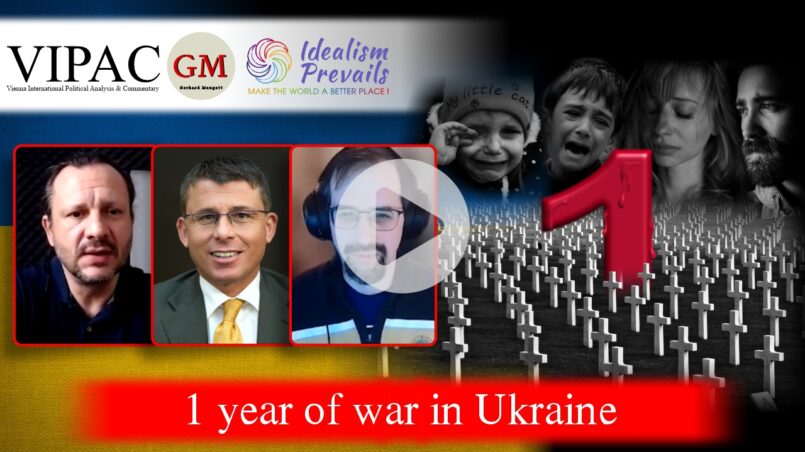Univ. Prof. Dr. Gerhard Mangott: One year of war in Ukraine

Exactly one year ago today, the (renewed) attack of Russian troops on Ukraine began. Together with political scientist Prof. Gerhard Mangott, we look on the one hand at the massive geopolitical changes caused by this war; on the other hand, we analyze the current developments and the increasing international voices that rely on mediation.
Russia has not achieved its military and political goals and will not achieve them – also thanks to the arms supplies of the West. Russia is betting that in the long run there will be stronger opposition in Western countries to the arms deliveries to Ukraine – both in Europe and in the United States.
Russia’s pressure on Belarus and other neighboring countries to integrate with Russia will increase over the next few years. However, due to the poor state of the army, this integration is unlikely to take place on a military basis, Mangott said.
Should Ukraine recapture Crimea, Mangott sees the use of Russian nuclear weapons as possible and likely. This is because Crimea is defined as part of the Russian empire – and Russian nuclear weapons doctrine is relatively clear on this point. Therefore, he said, one must always take into account the risk of using these weapons in one’s deliberations.
What means Ukraine needs to achieve its military goals, the intentions behind China’s and Brazil’s peace talks, whether we are seeing the end of globalization and why Mangott is pessimistic that we will see the end of war in 2023 are further topics of this conversation.

Hey, I think you are proving the point of the entire article perfectly! I’m so glad for all the information.
I am very grateful for the clear presentation of the situation, a really great help in this messy situation.